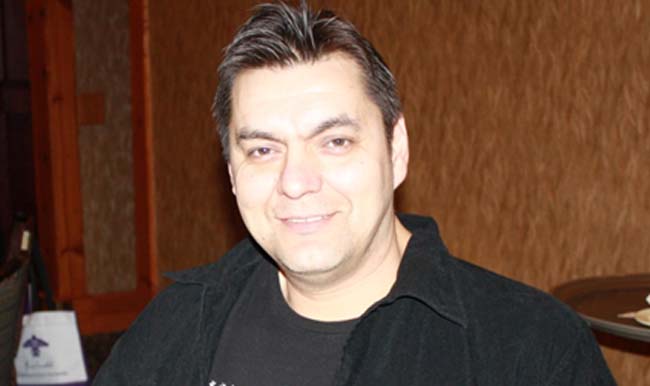Social workers find tools to help work on prevention

By Marci Becking
SAULT STE. MARIE – “First Nations and urban aboriginal agencies need to work together to meet the needs of our clients,” says Roseanna Hudson, citizen of Biinjitiwaabik Zaaging Anishinaabek, who works at the Thunder Bay Indian Friendship Centre in the Alternative Justice Program. “Our clients have so many health and addiction issues, are homeless or have FASD or special needs. All of our clients are in crisis so it’s hard to have time to work on any kind of prevention.”
Hudson was one of 170 participants who shared their experiences and challenges at the “Empowering the Voices of our Families” conference that focused on family violence prevention on Feb. 5-6.
“It’s hard to maintain contact with clients,” says Hudson. “We try to keep in touch with the shelter house and we use message boards at the Friendship Centre to keep in touch. If they don’t ask for their mail, they don’t get it.”
Hudson was interested in finding out from the FASD and Case Management session hosted by Union of Ontario Indians FASD team members Lynda Banning and Chochi Knott on what more she could do for those clients who live with FASD.
“I was really happy to hear that the UOI was hosting this conference. I want to see how we can work together to meet our clients’ needs and find out what supports are out there. We all have challenges with finding resources.”
Darren Madahbee, Mental Health Community Worker for the past year and a half in Aundeck Omni Kaning First Nation, says that he found Banakonda Kennedy-Kish Bell’s presentation on the Four Principles of Indigenous Practice very useful and he’ll be taking back what he learned and applying it to programs he runs in the community. One of these is a Martial Arts Brazilian Ju-Jitsu club.
“We have about 40 students on Manitoulin Island,” says Madahbee. “We deal with the bullying problem. We give them the tools to negotiate their side of things by finding balance in oneself first.”
Madahbee does Anishinabe medicine wheel drills and the students mimic the dodems in their martial arts warm-up sessions. Ages of participants go from five to Elders.
“Wives are calling me, thanking me for my efforts,” says Madahbee. “Their husbands are actually participating in their family lives and no longer are hooked into their Playstations.”
Adrienne Pelletier, Social Services Department director at the UOI says that she was really impressed with Judy Desmoulin’s session on community engagement.
“What they’re doing in Long Lake #58 – that’s how you do community development,” says Pelletier who hopes to host the conference again next year with another group of top-notch facilitators.
Rave reviews came in from workshops like Tannis Smith’s “Navigating the Child Welfare System”, Terry Swann’s “Introduction to Lateral Violence”, Pamela Cross’s “Family Law and Violence against Women”, and Sandra Montour’s “working with Individuals Impacted by Family Violence Utilizing Traditional Teachings”.
Bea Shawanda, Wikwemikong, was the master of ceremonies and one of the keynote speakers of the conference. She has been a frontline worker for over 35 years in both Canada and the United States in the fields of health, education, social and family development, organizational leadership and multi-cultural training.
Shawanda spoke of a community in the Yukon that she has worked with that struggled with drug abuse, suicide and generational affects of sexual abuse.
“The young Chief ran on a wellness initiative platform,” says Shawanda. “Not economic development, not education – although they are both still on the council agenda, his priority was the wellness of his people. They had crack cocaine coming in and they had very unique issues.”
In the 1980s, Shawanda had done an intervention and now they are doing a second one today.
“No matter the many years of pain they’ve been through, they still remember who they are,” says Shawanda. “They are reconnecting with their identity and finding what cultural identity means.”
“As we move forward in our own constitutions, we also need to learn from the Yukon people who have had their constitution for years. They’ve had real highs, and real lows. And it all has to do with how well are you when you’re implementing these constitutions.”


